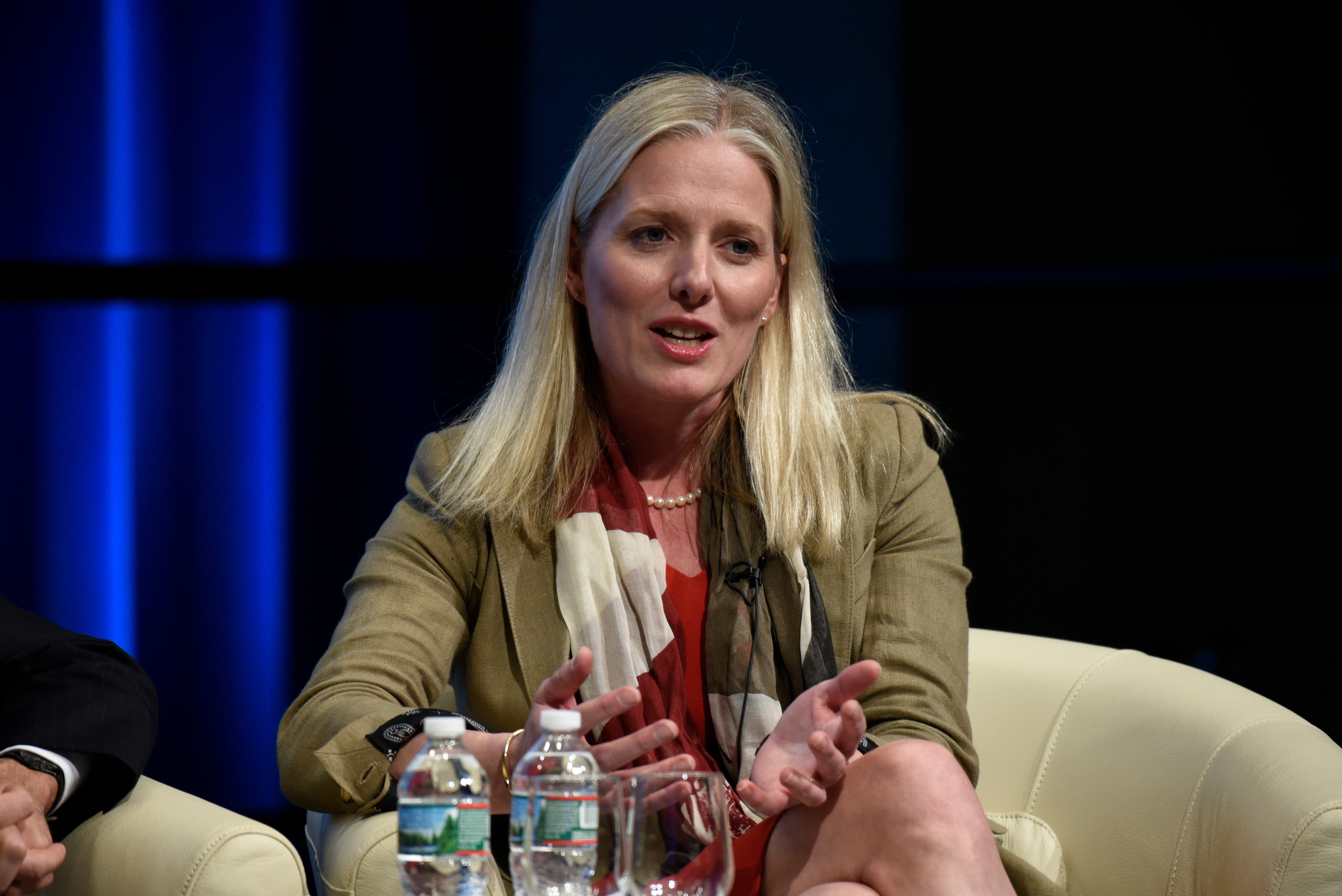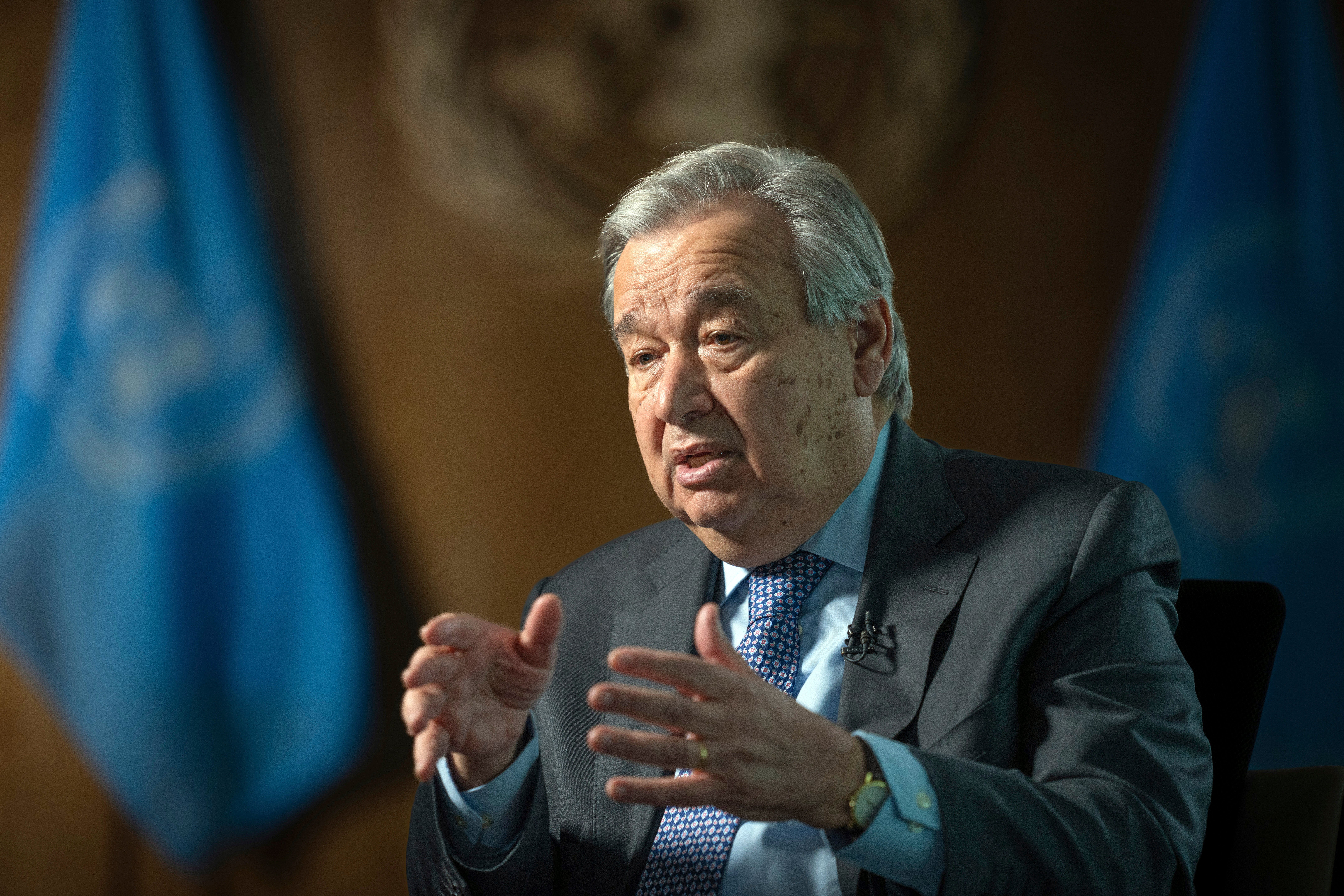‘Transparency is the best disinfectant’: How a UN group plans to tackle greenwashing
‘I believe that most people want to do the right thing but they have to pushed,’ said the chair of the new group

Your support helps us to tell the story
From reproductive rights to climate change to Big Tech, The Independent is on the ground when the story is developing. Whether it's investigating the financials of Elon Musk's pro-Trump PAC or producing our latest documentary, 'The A Word', which shines a light on the American women fighting for reproductive rights, we know how important it is to parse out the facts from the messaging.
At such a critical moment in US history, we need reporters on the ground. Your donation allows us to keep sending journalists to speak to both sides of the story.
The Independent is trusted by Americans across the entire political spectrum. And unlike many other quality news outlets, we choose not to lock Americans out of our reporting and analysis with paywalls. We believe quality journalism should be available to everyone, paid for by those who can afford it.
Your support makes all the difference.The head of a new United Nations group that will scrutinise companies’ pledges to cut planet-heating greenhouse gas emissions has warned that the growing trend of committing to be net zero by 2050 cannot be a “get out of jail free card”.
Catherine McKenna, chair of the new group and a former Canadian environment minister, said businesses, cities and regions need to reduce emissions and could not rely on carbon offsets, such as planting trees, or elusive future technologies to do the hard work of reducing emissions for them.
“You need to do the work yourself, you need to be doing it now,” Ms McKenna, a former Canadian environment and climate change minister, said via a video call from her office. “We can’t be delaying until 2049.”
The group of 16 experts – who include former government officials, think tank wonks and business leaders – aims to develop stronger standards for net zero emission pledges by businesses, investors, cities and regions and speed up their implementation while ensuring a “just transition” for workers and communities.
It’s an ambitious brief.
“Governments have the lion’s share of responsibility to achieve net-zero emissions by midcentury,” UN secretary-general Antonio Guterres said, announcing the new panel last month. “But we also urgently need every business, investor, city, state and region to walk the talk on their net-zero promises.”
“Tougher net zero standards and strengthened accountability around the implementation of these commitments can deliver real and immediate emissions cuts,” he added.
The group, whose official name is the High-Level Expert Group on the Net-Zero Emissions Commitments of Non-State Entities, will develop recommendations on four areas:
- Current standards and definitions for setting net zero targets by non-state actors
- Criteria to assess the objectives, measurement and reporting of pledges
- Ways to verify and account for progress towards net zero commitments and decarbonisation plans
- Ways these standards and criteria can be translated into government regulations
Ms McKenna said companies, particularly major emitters such as fossil fuel businesses, have an important role to play in helping drive down greenhouse gas emissions. As do investors, who drive the trillions of dollars the world needs to transition to renewables, and cities, which are estimated to control around 40 to 60 per cent of emissions.
While the new panel did not have the capacity to evaluate individual companies, cities or investment vehicles, Ms McKenna said it aims to make recommendations as to what credible pledges look like. Pledges need to be based on science, include immediate action and be transparent so that entities can be held to account, she said.
The group also aims to provide guidance to governments about what they can do to hold these entities to account, and to address the question of how leaders can account for these pledges in the global stocktake of efforts to curb emissions.
“The goal is to really look at how can we speed up action towards meeting the Paris Agreement goal,” she said, referring to the landmark international accord to limit global heating to well below 2 degrees Celsius (and ideally to 1.5 degrees).
The new group follows the publication of the latest chapter of the UN’s Intergovernmental Panel on Climate Change report which found that the global greenhouse gas emissions will have to peak before 2025 to limit warming to 1.5 degrees. In a speech unveiling the report, Mr Guterres accused governments and businesses of “lying.”
“Some government and business leaders are saying one thing, but doing another. Simply put, they are lying, and the results will be catastrophic. This is a climate emergency,” he said.

“Greenwashing is a real concern,” agreed, Ms Mckenna, adding that “transparency is the best disinfectant.”
Asked which sector was the biggest offender when it came to greenwashing, Ms McKenna said it was hard to say without having done the work, but that it was critically important to spend time looking at who are the heavy emitters. Questioned on whether fossil fuel companies’ net zero commitments were robust, she said that is part of what the group would look at.
The group’s work aims to help identify which are the good actors and which aren’t, she said, adding that good ones are currently at a disadvantage because without rigorous clear standards, some actors were getting a free pass. Greenwashing reduces credibility and boosts cynicism, which in turn is “fatal” for climate action, she added.
The goal is for everyone to be able to see whether businesses, cities, investors and regions are reducing emissions and are on track to meet their commitments, she said. Without this, cynicism will thrive and those who don’t want to do things will win, she added.
“I’m a practical optimist,” she said. “I believe that most people want to do the right thing but they have to pushed.”

Join our commenting forum
Join thought-provoking conversations, follow other Independent readers and see their replies
Comments